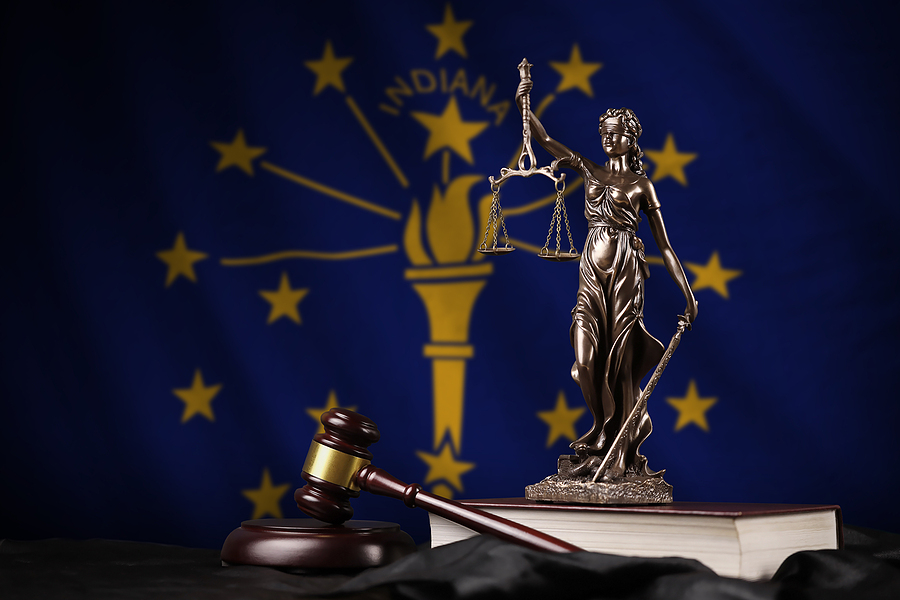When someone is accused of committing a crime, the consequences can range widely—from a small fine to life-altering penalties like imprisonment or even death in extreme cases. Navigating the complexities of criminal law can be overwhelming, which is why understanding the different levels of punishment is crucial.
Whether you’re looking to gain knowledge about the legal system or facing criminal charges yourself, this guide explains everything you need to know about how crimes are classified and what punishments they carry under Indiana criminal law, as well as federal and state laws.

Levels of Punishment for Convicted Criminals
Misdemeanors: Minor Offenses, Major Consequences
Misdemeanors are often considered less severe crimes compared to felonies but still carry legal consequences that can impact your life. They are typically divided into three categories:
Class A Misdemeanors
Class A misdemeanors are the most serious type of misdemeanor under Indiana criminal law. These offenses may include crimes like battery causing bodily injury, DUI with a blood alcohol content (BAC) above the legal limit, or possession of small amounts of controlled substances. A conviction can result in:
- Up to 1 year in county jail
- Fines of up to $5,000
Class B Misdemeanors
Slightly less severe, Class B misdemeanors often involve charges like public intoxication or reckless driving. Punishments for Class B misdemeanors include:
- Up to 180 days in jail
- Fines of up to $1,000
Class C Misdemeanors
Class C misdemeanors are the lowest level of misdemeanor offenses in Indiana and may include crimes like disorderly conduct or possession of alcohol as a minor. Penalties include:
- Up to 60 days in jail
- Fines of up to $500
Misdemeanors may not seem as serious as felonies, but they can still result in a criminal record, which can affect job opportunities, background checks, and even housing applications.
Felonies: The Most Severe Criminal Charges
Felonies, on the other hand, are the most serious criminal offenses and result in more severe punishments, often involving significant jail time. Felony charges are classified into levels to describe their severity.
Level 1 Felonies
This is the most serious non-capital felony charge in Indiana. Examples include aggravated rape or large-scale drug trafficking. Level 1 felonies can lead to:
- 20 to 40 years in prison
- Fines of up to $10,000
Level 2 Felonies
Level 2 felonies often involve severe harm to others, such as manslaughter or armed robbery. Punishments include:
- 10 to 30 years in prison
- Fines of up to $10,000
Level 3 Felonies
These charges can include crimes like aggravated battery or burglary involving injury and are punishable by:
- 3 to 16 years in prison
- Fines up to $10,000
Level 4 Felonies
Examples might include vehicle theft or possession of significant amounts of narcotics. Consequences include:
- 2 to 12 years in prison
- Fines up to $10,000
Level 5 Felonies
Level 5 felonies may include crimes like theft of high-value property or reckless homicide. Penalties include:
- 1 to 6 years in prison
- Fines up to $10,000
Level 6 Felonies
These are the least severe felonies in Indiana and may involve operating a vehicle while intoxicated (OWI) with prior convictions. Punishments are:
- 6 months to 2.5 years in prison
- Fines up to $10,000
Felony charges often result in long-term consequences beyond incarceration, including loss of voting rights, difficulty securing employment, and restrictions on firearm ownership.
Infractions: The Lesser Offenses
Infractions may not legally constitute “crimes,” but they still involve violations of state laws and result in penalties. Typical infractions include parking tickets, speeding violations, or failing to yield at a stop sign. Although infractions do not lead to jail time, they can result in:
- Fines (depending on severity)
- Points on your driving record (for traffic violations)
- Increased insurance premiums
Unlike misdemeanors and felonies, infractions are considered civil offenses and will not lead to a criminal record.
Probation: A Second Chance with Conditions
Probation is a supervised release program where an offender avoids jail time by meeting specific conditions set by the court. This punishment is often used in misdemeanor or lower-level felony cases where incarceration might not be necessary.
Typical probation terms include:
- Regular check-ins with a probation officer
- Community service
- Drug or alcohol screenings
- Restrictions on travel or residence
Violating probation conditions can result in revocation and lead to jail time, so compliance is crucial.
Incarceration: Jail vs. Prison
For many criminal charges, incarceration is the most commonly known punishment. However, the duration and location depend on the severity of the offense:
- Jail: For sentences typically under one year, often for misdemeanors. Jail facilities are usually managed at the county level.
- Prison: Reserved for longer sentences exceeding one year, generally for felonies. Prisons are state or federally operated and are much stricter.
Conditions of confinement can vary significantly, but they remain one of the most severe forms of punishment under criminal law.
Capital Punishment: The Ultimate Penalty
Capital punishment, also known as the death penalty, is the most severe penalty within the criminal justice system. Although not used in every state, capital punishment applies to the most heinous crimes, such as first-degree murder with aggravating circumstances. Indiana does allow the death penalty, though its use is rare.
Methods of execution vary but often include lethal injection. Because of its irreversible nature, cases involving capital punishment undergo a lengthy appeals process to ensure fairness and accuracy.
RECAP
Understanding the different levels of punishment in criminal law is essential for anyone facing criminal charges or interested in how the legal system works. Punishments vary widely based on the severity of the offense, from fines and probation to incarceration and even capital punishment.
If you or a loved one is facing criminal charges, it’s critical to consult with an experienced criminal defense attorney who understands Indiana criminal law and federal law. Protecting your legal rights is the first step to ensuring the best possible outcome.
If you were recently arrested or charged with an offense on any level, seek legal help now. Contact Attorney David E. Lewis at 317-636-7514 to speak with a skilled and experienced criminal defense lawyer in Indianapolis, Indiana. Our law firm will obtain the best possible outcome for your criminal case!
Related Posts:
Misdemeanors vs. Felonies: What You Need to Know
Understanding Criminal Law in Indiana: A Beginner’s Guide
What are My Constitutional Rights After Being Arrested?






